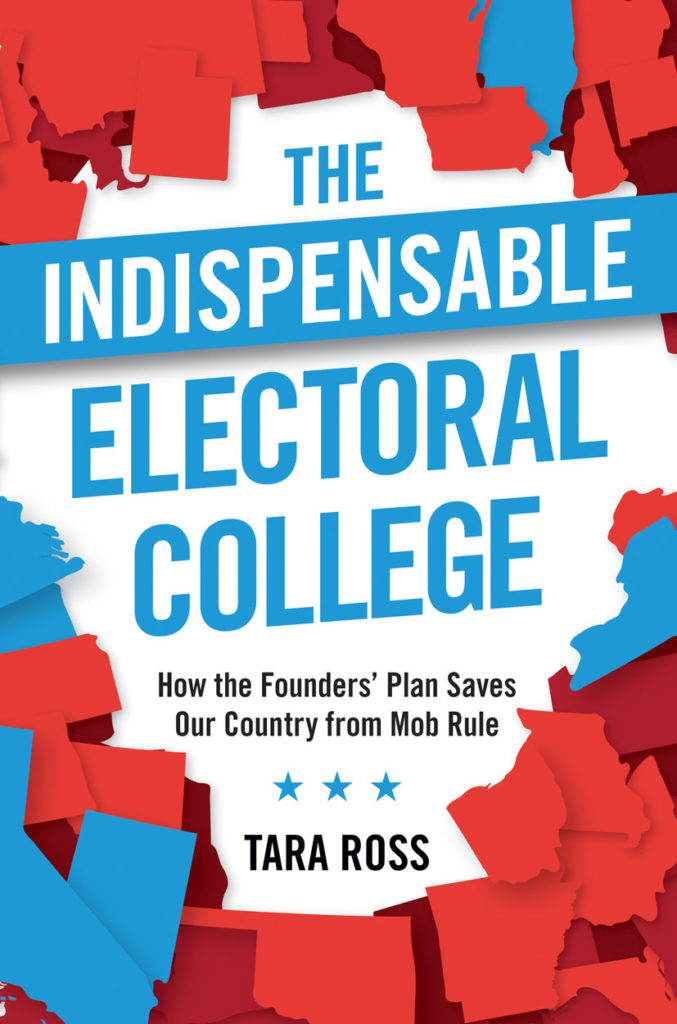How the Electoral College Helps Protect Against Voter Fraud
Tara Ross /
“Our new Constitution is now established,” Benjamin Franklin wrote to a French physicist in 1789, “and has an appearance that promises permanency; but in this world nothing can be said to be certain, except death and taxes.”
Perhaps Franklin should have added one more item to his list of certainties: dishonest people will always exist—and they will always cheat. It’s part of the human condition.
Unfortunately, no election system can turn dishonest people into honest ones. Where people are vying for power, there will always be motivation for fraud. The best that an election system can do is to throw up as many hurdles as possible to dishonesty and to minimize its effects.
The Electoral College accomplishes both of these goals far better than a direct national election can.
With the Electoral College in place, an election cannot be stolen unless a few factors come together simultaneously.
First, at the national level, the election needs to be close enough that altering the results in only one or two states would change the outcome.
Second, the margins in those contested states must also be very close. Such elections are fairly rare. The election of 2000 was one such election: Florida could have changed the outcome, and the margin in that state was vanishingly small.
The election of 1960 was another: Both Texas and Illinois had narrow margins—they could have flipped the election to Richard Nixon. Most elections are won by wider margins.
A third criterion may be the hardest to meet. Assuming the election is close, dishonest actors must be able to predict which state (or states) will be close enough to influence the final results.
This is harder than it sounds. In 2000, no one could have known in advance that a few hundred stolen votes in Florida could change the election outcome.
In fact, if the media had not called the state for Al Gore too early—before polls closed in the Republican-leaning panhandle—the result might not have been so narrow.
>>> Purchase Tara Ross’ book, “The Indispensable Electoral College: How the Founders’ Plan Saves Our Country from Mob Rule”
But imagine that someone is able to make such a prediction. If one person can do it, then probably many people from both parties have made the same prediction. Poll watchers will descend upon the potentially problematic state.
In 2004, it was widely expected that the election in Ohio would be extremely close and that the state might tip the election one way or the other.
Unsurprisingly, then, the election was closely monitored. Poll watchers and lawyers from all over the country swarmed the state. Voting fraud has probably never been more difficult to pull off than it was in Ohio in 2004.
With the Electoral College, stealing votes is easiest where they do not matter to the national outcome (e.g., safe states dominated by one political party), and it’s hardest where they do matter (e.g., swing states, which are usually closely watched).
It is probably naïve to believe that fraud can ever be completely eliminated, but the Electoral College at least makes it as difficult as possible.
Now consider a world without the Electoral College. Suddenly, the situation is reversed. Any vote stolen in any part of the country can change the outcome of an election.
Even votes that are easy to steal suddenly become critical to the national outcome. Imagine how easy it must be to steal votes in the bluest California precinct or the reddest Texas one. These easily stolen votes are now able to change the national results.
There is no need to predict which swing state could change the outcome of the election. This is a dangerous situation and the opposite of what Americans experience today.
The Electoral College provides one final benefit in this context. If problems do occur during the election, either because of fraud or because of human error, those problems can be limited to one or a handful of states.
The elections of 1876, 1960, and 2000 demonstrated this remarkable ability of the Electoral College to provide certain and stable outcomes, even when matters are otherwise threatening to fall apart.
Today, some might question whether George W. Bush “really” won Florida’s vote, but the votes in other states are not questioned. The broad national coalition that Bush pieced together outside Florida is undeniable.
Without the Electoral College, even this certainty would be absent. Instead, given the close popular vote in 2000, many today could be questioning whether Bush or Gore “really” won the national popular vote.
There would have been no certain point at which the country could have stopped the legal wrangling over recounts.
The Electoral College successfully limits the effects of fraud and error to one or a handful of states. The remaining electoral votes can remain above the fray, as they are undisputed.
The country is given a clear set of problems to resolve before moving on to a definitive election outcome.
This excerpt was taken with permission from Tara Ross’ book, “The Indispensable Electoral College: How the Founders’ Plan Saves Our Country from Mob Rule” (Regnery Gateway, 2017).

